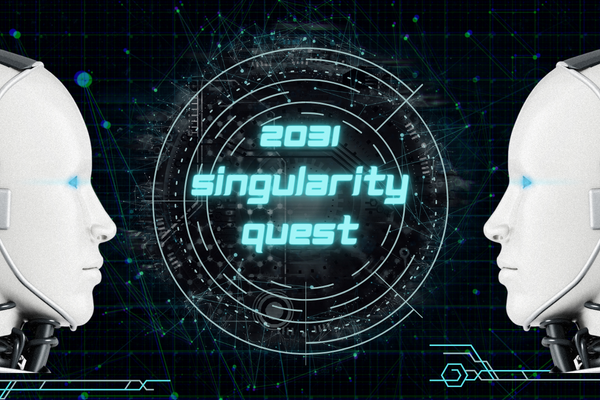Mind-Blowing Prediction: Brace Yourself for the Singularity by 2031, According to a Scientist!
Understanding the Singularity
In this post we will discuss about A scientist has suggested that the Singularity could potentially occur by 2031 – The Singularity encapsulates a hypothetical future point where technology, specifically artificial intelligence, surpasses human intellect and triggers an unprecedented, exponential advancement. This concept often involves AI evolving beyond our control or comprehension, leading to transformative changes in society and technology.
The Scientist’s Prediction: Exploring the Claim
A respected scientist recently sparked speculation by suggesting the potential arrival of the Singularity by 2031. This claim has provoked intense debate and curiosity within scientific and technological circles. While exciting, it’s essential to scrutinize the basis, evidence, and reasoning behind such a bold prediction.
The Road to 2031: Technological Milestones
Advancements in AI and related technologies form a crucial trajectory toward this proposed Singularity. Exploring the significant milestones achieved in machine learning, quantum computing, and other fields sheds light on the plausibility of such a groundbreaking event occurring within the next decade.
AI Advancements: Impact and Implications
The evolution of AI presents a wide-ranging impact across diverse sectors, from healthcare and finance to transportation and communication. Understanding the current capabilities and potential future advancements is pivotal in comprehending the scope of the Singularity and its possible consequences.
Challenges and Ethical Considerations
The rapid progression of AI raises pertinent ethical dilemmas and challenges. Issues like data privacy, job displacement, biases in algorithms, and AI decision-making accountability need thorough examination. Addressing these concerns is crucial for navigating the ethical implications of a potential Singularity.
Human-AI Symbiosis: Possibilities and Risks
The interplay between humans and AI involves both promising collaborative possibilities and inherent risks. Exploring the augmentation of human capabilities through AI and the delicate balance in this relationship unveils a spectrum of potential outcomes as we approach the speculated Singularity.
The Countdown to 2031: What’s Next?
As the suggested timeline draws nearer, it’s imperative to analyze current trends, debates, and emerging developments in the AI landscape. Delving into what lies ahead, including research directions, policy implications, and societal readiness, allows us to better prepare for the envisioned era.
The proposed Singularity by 2031 is a tantalizing concept, driving discussions and inquiries across scientific, technological, and societal domains. As we navigate the path toward this potential event, it’s crucial to contemplate not only the technological advancements but also the ethical considerations and societal implications that accompany such monumental progress.
Remember, predicting the future, especially in the realm of technology and artificial intelligence, remains a speculative venture. Nonetheless, exploring and understanding the possibilities laid out by this prediction can offer invaluable insights into our technological trajectory and the potential future landscape shaped by AI










